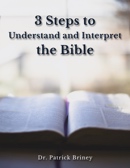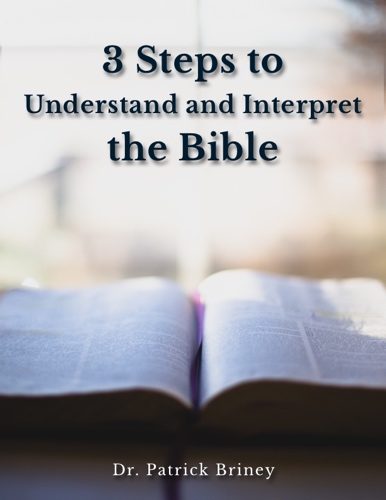A reader sent the following note to me to entice me to purchase a book. I declined because of the errors I saw in the note.
Many comments made in this note are all too common and all too wrong. So I thought it would be beneficial to post the critique in case other readers held to the same ideas. My comments are intended to challenge, stimulate thoughtfulness, and hopefully persuade some if not all readers to avoid holding such wrong ideas.
I present my response as PRB after each quote made by the advertiser.
Advertiser quote: Because eternal life comes from the words of Jesus (John 6:63) and because each person will be ultimately judged by the words of Jesus (John 12:47-48), the most important words known to man are the words of Jesus found in Matthew, Mark, Luke, John and Revelation.
PRB: Because Jesus is the Word of God (John 1:1, 14) and the entire Bible is the inspired Word of God (2 Timothy 3:16; 2 Peter 1:21), it would be more accurate to say that the entire Bible is important. While it is possible to say that different topics in the Bible are more appropriate for different circumstances, it would be impossible to defend the general position that some books of the Bible are more important than others. After all, in Acts 20:27 Paul said,
For I have not shunned to declare unto you all the counsel of God.
All Scripture is given by inspiration of God to benefit us (2 Timothy 3:16-17).
Advertiser quote: Of these five records, only Matthew and John were companion eye-witnesses to the words and deeds of Jesus. The gospels of Mark and Luke, the writings of Paul, every statement in the Bible, every personal opinion and every teaching in the church should be screened for accuracy by the information found in Matthew, John and Revelation.
PRB : Eye-witness accounts of Jesus do not guarantee accuracy in recounting His words and deeds. Rather, the Holy Ghost must control the recollection of accounts. Prophecy came not in old time by the will of man: but holy men of God spake as they were moved by the Holy Ghost (2 Peter 1:21). And since all scripture is given by inspiration of God and is profitable for doctrine, for reproof, for correction, and for instruction in righteousness, then all Scripture has been given to us by the Holy Spirit of God. And these writings have been tested by the churches since the days of the Apostles.
Advertiser quote: The best record of the original words of Jesus is found in the Greek manuscripts Sinaiticus, Vaticanus and Alexandrinus which date more than 300 years after Jesus spoke the words in Aramaic.
PRB : The abundance of internal errors in these documents show that these manuscripts were copied without careful discipline. Of all the manuscripts, these are the least trustworthy.
Advertiser quote: When these were translated from the Greek, traditions were protected by transliterations and manufactured words. Just as the Talmud became equal in authority to the Torah and influenced the rejection of Jesus, the writings of Peter, Paul and subsequent traditions are accepted as being equal in authority to the words of Jesus.
PRB : Because all Scripture is given by inspiration of God as holy men of God spoke as they were moved by the Holy Spirit, then all Scripture is of equal authority (2 Peter 1:21). Thus, it is not appropriate to assign value to Scripture based on the man who was used by God to record God’s words. Doing so removes the role of the Holy Spirit from the care and inspiration involved in giving us the Scriptures, which is vital to preserving truth. A prophet inspired by God and guided by the Holy Spirit gives us the firsthand account.
Advertiser quote: A comment made by Paul that contradicts Jesus and an act of Peter which ignored the instructions of Jesus became the two most powerful and destructive traditions in the organized church.
PRB : Paul, being inspired by the Holy Spirit, did not contradict Jesus while writing the letters in the Bible. Rather, those who interpret Paul’s writings construe a contradiction because of faulty interpretation (2 Peter 3:16). And Peter’s denial of knowing Christ at the trial of Jesus is an act by Peter that is not condoned in the Bible. Rather, it is simply an account of what Peter did.
Advertiser quote: In spite of these errors, the truth of the message of Jesus can be clearly seen. What Jesus said corresponds to what God says when he speaks directly to a person. A translator should be careful to give the meaning of the words and not be influenced by ideas and circumstances which exist at the time of his translation. A transliteration does not tell a reader the meaning of a word and results in erroneous ideas about what is said.
Here are some examples: Angel-(Greek-aggelos-angelos)-This means messenger and only the context will determine if this is a human or heavenly messenger. Baptize- (Greek-Baptidzo)- This means to dip or immerse. Hypocrite-(Greek-hupocrites)-This is an actor or pretender. Mammon (Greek-mamonas)- This is what a person believes. Because God is not a believed teaching but a living being, Jesus told the Scribes and Pharisees they could not serve both God and what they believed.
PRB : The error in this argument is failing to apply the same reason for understanding the original language to the original translated language.
According to the Oxford English Dictionary, in 1611 at the time of the KJV translation, the word angel refers to a messenger of God whether heavenly messenger or human.
The word baptize does not exclude immersion from the meaning.
Hypocrite is defined as one who falsely professes to be virtuously or religiously inclined; one who pretends to have feelings or beliefs of a higher order than his real ones; hence generally, a dissembler, pretender.
Mammonas is Greek for Mammon, and both cases refers to wealth or riches. To give such an alternate definition of the word Mammon is inconsistent with the insistence to be careful about translating words.
The word choices used in 1611 were appropriate for the English translation. But as with anything worth learning and understanding, it is important to study the Bible and define the words in the Bible, even if you think you already know the meaning. Second Timothy 2:15 tells us,
Study to shew thyself approved unto God, a workman that needeth not to be ashamed, rightly dividing the word of truth.
Advertiser quote: One mistranslated word that affects the entire book of Revelation is the Greek word “ginesthai.” Because the tense can be aorist (past) or present, verse 1:1 states the events of Revelation are past and present, not future.
Suppose someone you love dearly is in a life and death struggle. Do you give them instructions that pertain to their present need or something about the future beyond their lifetime? In Revelation Jesus showed John the crucifixion, ascension and how Satan uses religion, government and commerce to control the masses of mankind by persuading people to use a pyramid system (600-60-6) which enables one to control many. In this system people look to and honor human leaders instead of God (see Matthew 23:8-10).
PRB: First, Revelation is a book that addresses the past and the present as well as the future. Revelation 21 and 22 speak of events that will come to pass. Thus, confining the entire book of Revelation to one word is clearly an error.
Second, personal experience and preference are not legitimate reasons to ignore talking about the future, especially if end time topics are comforting someone in a life and death struggle. And to suggest that one must choose between discussing the present or the future is a false dichotomy.



